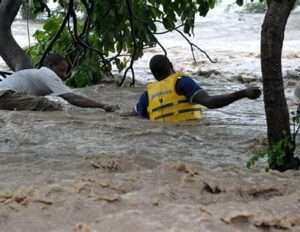Burkina Faso and Mali warn against foreign intervention after Niger coup.

The two countries joined Guinea in expressing ‘fraternal solidarity’ with the people of Niger after a military coup.
Burkina Faso and Mali have warned that any intervention in neighbouring Niger would be considered a “declaration of war” against their two countries, a signal of support for leaders of the recent coup there.

In a statement released on Monday, the governments of Mali and Burkina Faso also refused to implement what they called “illegal, illegitimate and inhumane sanctions” against the Nigerien people and authorities.
“The transitional governments of Burkina Faso and Mali express their fraternal solidarity – and that of the Burkinese and Malian people – to the people of Niger who have decided with full responsibility to take their destiny in hand and assume the fullness of their sovereignty before history,” the statement read.
The message comes less than a week after soldiers guarding Nigerien President Mohamed Bazoum took the leader into custody on July 26, declaring they had “put an end” to his administration.
Among their complaints were the “deteriorating security situation” in Niger as well as the rising cost of living. With Bazoum overthrown, the chief of the presidential guard, Abdourahamane Tchiani, named himself leader in a televised address.
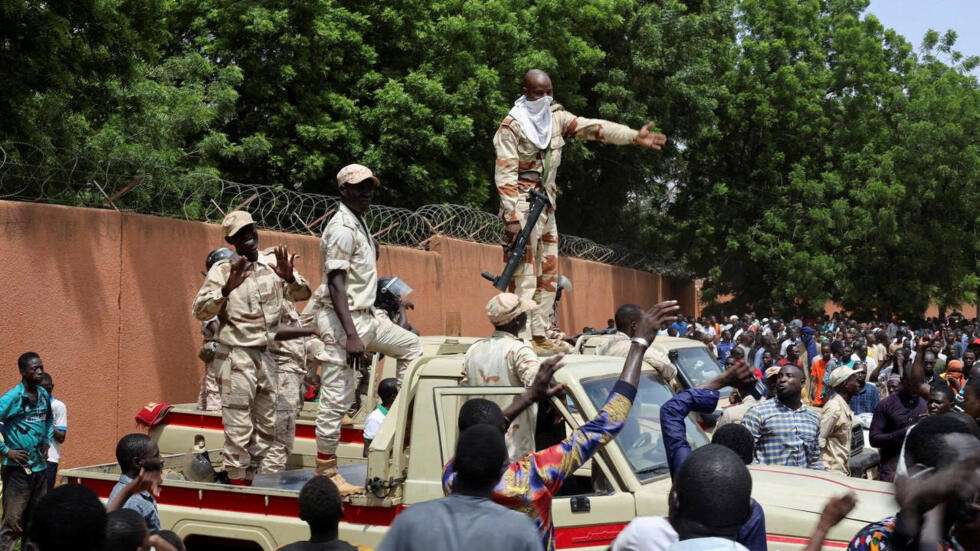


Niger coup supporters attack French embassy
Threats of military intervention
But the international backlash was swift. On Sunday, the Economic Community of West African States (ECOWAS), a 15-member international organisation, decried the coup as a “hostage situation” and threatened military intervention if Bazoum was not restored to power.
“In the event the Authority’s demands are not met within one week,” ECOWAS would “take all measures necessary to restore constitutional order in the Republic of Niger”, the organisation said in a communiqué. It added: “Such measures may include the use of force.”
Inaugurated in 2021, Bazoum was the first Nigerien president to be democratically elected through a peaceful transition of power. Western governments like the United States and France embraced his administration as a key ally – and source of stability – in Africa’s Sahel region.
But on Saturday, in the wake of Bazoum’s removal, the European Union announced “immediate suspension of budget support” and “all security cooperation activities”. France, the former colonial power in the region, took similar actions.
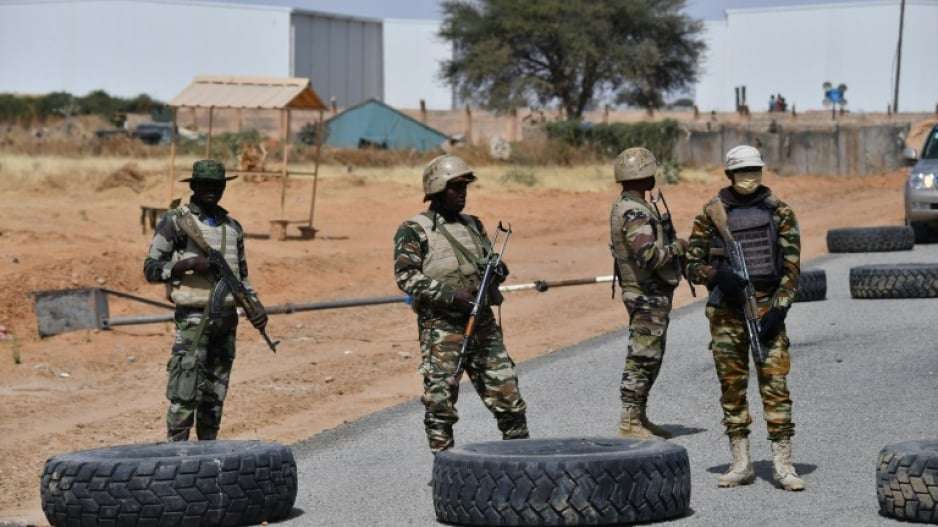
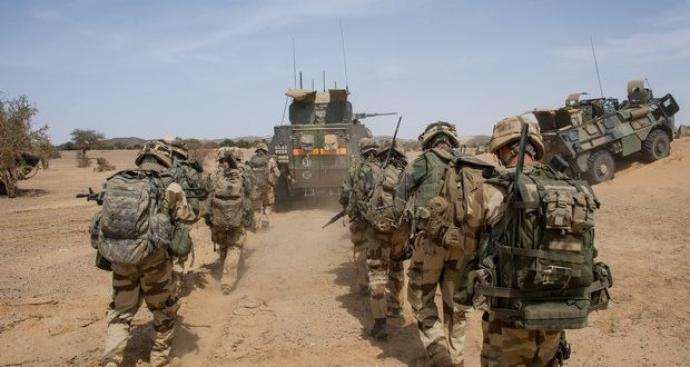
And US Secretary of State Antony Blinken, who travelled to Niger in March, said his country would consider withdrawing its assistance, which included $150m announced during the visit.
“Our economic and security partnership with Niger – which is significant, hundreds of millions of dollars – depends on the continuation of the democratic governance and constitutional order that has been disrupted by the actions in the last few days,” Blinken said.
He called on Bazoum’s removal “to be immediately reversed”. The US has declined to term the recent events a “coup” or acknowledge Tchiani as leader.
West African gov’ts give Niger coup leaders a week to cede power
Support for military leaders
The leaders of the Niger coup received support not only from Burkina Faso and Mali but also from Guinea, one of the few countries to speak out on their behalf.
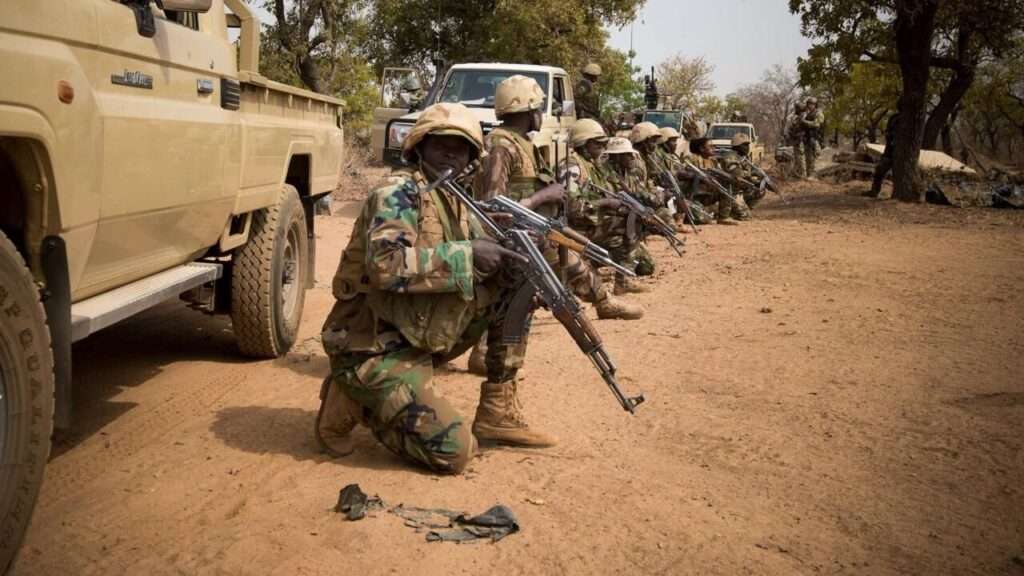
In a social media post on Monday, the office of Guinea’s President Mamady Doumbouya issued a statement “firmly expressing support toward the people of its partner country”.
“The measures of sanction recommended by ECOWAS, including a military intervention, are options that would not be a solution to the current problem but would lead to a humanitarian disaster whose consequences could extend beyond the borders of Niger,” the statement said.
Earlier on Monday, the coup leaders in Niger alleged that Bazoum’s government had authorised a French attack on the presidential palace, a claim the French government denied.
But such fears helped stoke ongoing pro-coup protests outside the French embassy in the capital Niamey, where demonstrators could be heard chanting, “Long live Russia” and “Down with France”.
International observers fear the instability in Niger could create an opportunity for organisations like the Wagner Group, a private mercenary company based in Russia.


Wagner’s leader Yevgeny Prigozhin spoke approvingly about the coup over the weekend, saying the situation had been brewing for a while.
“The former colonisers are trying to keep the people of African countries in check,” he added in his audio message on the Telegram app.
His statements struck a stark contrast with that of the Kremlin in Russia, which called the situation in Niger a “cause for serious concern“.
SOURCE: AL JAZEERA
Richard Koomson| mediacentralonline.info |Ghana
kindly send us your stories on our WhatsApp line 0500004727



